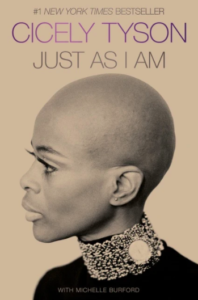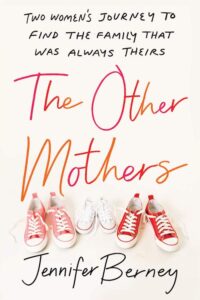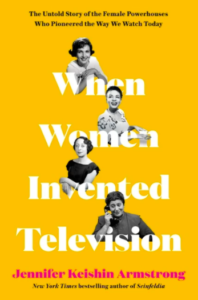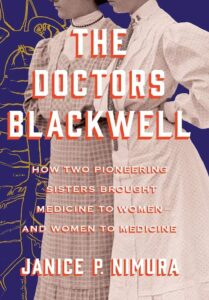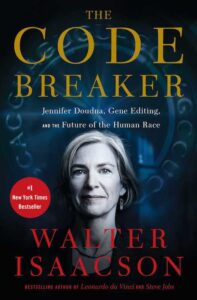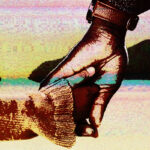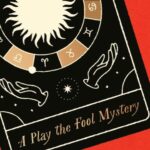5 Audiobooks for Celebrating the Stories of Trailblazing Women
James Tate Hill Recommends Elizabeth Blackwell,
Cicely Tyson, and More
In an attempt to take the subject beyond March, this month’s audiobook recommendations shine a light on women’s history, known and unknown, heralded and not. Viewing the glass as half-empty, it’s dispiriting how many of these stories remain untold, forgotten, or misunderstood. But let’s be optimists and cheer the increasing number of women’s stories that are finding their way into print—and audio—every year. It’s also worth celebrating how many of them, like four of these five titles, are being written by women.
Just As I Am: A Memoir by Cicely Tyson with Michelle Burford
Narrated by Cicely Tyson, Robin Miles, and Viola Davis · HarperCollins/HarperAudio
16 hours and 9 minutes
Of all the contributions to the arts Cicely Tyson left the world when she died earlier this year at age ninety-six, her memoir might be one of the most fascinating. Written with Michelle Burford, Just As I Am brims with insights into the actress’s life as a black woman, mother, activist, and artist spanning nearly a century.
Born in 1924 Harlem to West Indian immigrants, Tyson saw King Kong in the movie theater as a young girl. Instead of falling in love with the silver screen, she was so frightened she wouldn’t see another movie until 1972’s Sounder. Tyson’s Oscar-nominated performance in that film was her breakthrough at age 47, though most believed her to be a decade younger. Many years would pass before she corrected the record.
Narrating the introduction for the audiobook, Tyson also sounds younger than her 96 years. Primary narrator Robin Miles captures the author’s voice and gravitas without trying to emulate her. Miles slides naturally into the book’s conversational tone. She also knows her way around a West Indian accent. Viola Davis narrates her own preface, but the flawed audio quality of this section mars an otherwise thoughtful tribute to her two-time costar.
Delightfully gossipy, Just As I Am has plenty to say about race and gender in Hollywood. It’s also about relationships, notably the actress’s complicated romance and marriage to Miles Davis. She describes the legendary musician as a man “who played fast and loose with his life far too frequently to have known his value.”
Making sense of how she could have tolerated Davis’s drug use, jealousy, and infidelity, Tyson describes Miles’s behavior as a song she had learned from her parents. “My father had taught me the music, and my mother, in her own way, had emphasized each measure, hummed along with the clamor even as she railed against it.”
The Other Mothers: Two Women’s Journey to Find the Family That Was Always Theirs by Jennifer Berney
Narrated by Xe Sands · Sourcebooks/Tantor Audio
7 hours and 19 minutes
Jen Berney grew up knowing that lesbians could become parents, “but I had never known a family with two moms. I had never seen one on TV or read about one in a book.” The Other Mothers is her moving memoir of forming her own with her wife, Kelly. It’s also an eye-opening look into the history of fertility and LGBTQ+ parenthood in America.
Initially, Berney thinks that convincing Kelly to become a parent will be the hard part. An electrician who prefers dogs to kids, Kelly’s yes turns out to be one of the easier steps. The couple finds themselves in a series of doctors’ offices where queer parents are scarcely considered.
“Male factor infertility remains the standard diagnosis for all lesbian couples seeking intrauterine inseminations. It’s a term that inserts a man in the equation when there is none.”
Xe Sands makes for a warm and empathetic companion in the audiobook, a compassionate surrogate for the author, no pun intended. She reads with a conversational cadence that underscores how immensely likeable Jen and Kelly are, funny and generous to each other. In places, Sands has a way of pausing for an extra moment between sentences, underscoring the void in Berney’s life.
If the couple’s doctors rarely makes space for queer parents, the earliest sperm banks were even worse. International adoption in countries where gay marriage still isn’t recognized remains impossible. Heterosexuals unable to conceive, Berney explains, have always had more options than queer couples.
The Other Mothers is a tale of pregnancy and parenthood, but it’s also a meditation on family. “The queers have always defined family differently than the culture at large. We’ve always needed to reach beyond our blood kin, to draw close those who know the pain of our particular difference, and those who can see us.”
When Women Invented Television: The Untold Story of the Female Powerhouses who Pioneered the Way We Watch Today by Jennifer Keishin Armstrong
Narrated by Nan McNamara · Harper/HarperAudio
9 hours and 40 minutes
In 2021, most know Betty White from The Golden Girls or The Mary Tyler Moore Show, or as “the sassy old lady who’s still got it.” But long before that, White helped to give shape to the live talk show and became one of the first women to write, produce, and star in her own sitcom. In her latest deep dive into pop culture, Jennifer Keishin Armstrong spotlights this lesser-known chapter of White’s life, along with three other women who changed television history.
In the early days of television, by Armstrong’s count, as many as 25 percent of creative teams behind scripted primetime network shows were female. By 1973, that number had fallen to six percent. The author deftly connects the political climate of the 1950s to the reduction of opportunities for women working outside the home.
1950s politics also took a toll on Hazel Scott, one of the four women at the center of the book. Scott was the first black person, male or female, to host her own TV show. After testifying before Joseph McCarthy’s House Unamerican Activities Committee, the mere implication that she had communist ties caused her career to falter.
The author of excellent books about Seinfeld and The Mary Tyler Moore Show, Armstrong recreates scenes from archival documents as well as interviews with descendants and surviving witnesses. Audiobook readers can find notes on specific sources in an enhanced PDF. Such documentation was once omitted from audiobooks, and the increasing regularity with which it’s now made accessible further narrows the gap between audio and print.
The always-terrific Nan McNamara narrates the audiobook with a lively, TV-ready voice. She also balances well the fast-paced narrative with its sensitive forays into racism and mental illness.
The book’s other leading ladies are Gertrude Berg and Irna Phillips, who both began their careers in radio. Berg created and played the matriarch of the long-running sitcom The Goldbergs, and Phillips revolutionized the soap opera with The Guiding Light. Many elements of serialized television can be traced to Phillips, from cliffhangers to the use of doctors and lawyers as main characters. Because women were once the primary audience for soap operas, Phillips’s profound influence on all scripted shows has gone unrecognized, a wrong righted by a book as important as it is entertaining.
The Doctors Blackwell: How Two Pioneering Women Brought Medicine to Women and Women to Medicine by Janice P. Nimura
Narrated by Laural Merlington · W.W. Norton & Company/HighBridge
11 hours and 24 minutes
“Medicine had not been an obvious choice for a young woman who equated illness with weakness, cared little for anyone beyond the circle of her eight siblings, and preferred the life of the mind to the functions of the body, which she found, quite frankly, disgusting.”
Nevertheless, in 1849, Elizabeth Blackwell became the first woman in America to earn an M.D. A few years later her younger sister, Emily, followed in her footsteps. Emily became the more skilled physician of the two, but never received the accolades Elizabeth did. Janice P. Nimura gives both sisters their due in The Doctors Blackwell, complicating a story often reduced to its inspirational firsts.
Narrating an audiobook of history is often a thankless affair, absent the voice work and emotive prose of novels and narrative nonfiction. Engaging the listener with the steady voice nonfiction requires, however, can be more difficult than narrating fiction. It’s a testament to Laural Merlington, and also Nimura’s lively prose, that the audiobook of The Doctors Blackwell sparkles with energy and wit.
One of the biggest misconceptions about Elizabeth Blackwell is her relationship to the women’s rights movement. To put it bluntly, she didn’t care for their antics. “Elizabeth regarded women with the calm superiority of a benevolent deity. Women were not her peers or her equals, and she had little desire to work alongside them.”
Elizabeth’s prickly exterior—and only slightly less prickly interior—complicated most of her relationships. And if this isn’t the Elizabeth Blackwell history remembers, it’s because her and her sister’s impact on medicine and women’s history was so deep. By the time of their death, nine thousand women practiced medicine in America. Today, Nimura notes, 35 percent of physicians and slightly more than half of all medical students are female.
The Code Breaker: Jennifer Doudna, Gene Editing, and the Future of the Human Race by Walter Isaacson
Narrated by Kathe Mazur and Walter Isaacson · Simon & Schuster/Simon & Schuster Audio
16 hours and 4 minutes
If Walter Isaacson books weren’t already publishing events, a subtitle like “the History of the Human Race” might have nudged his latest into that category. That The Code Breaker lives up to that subtitle, possibly even exceeds it, speaks to the author’s storytelling as well as the science at the center of his book.
Isaacson spends the majority of his time with Jennifer Doudna, winner of the 2020 Nobel Prize in Chemistry for the development of a method of genome editing. Inspired at a young age by James Watson’s book about his own DNA discoveries, Doudna works hard and thinks big. And if she isn’t haunted by how thoroughly Watson and his partner, Francis Crick, minimized the significant contributions of their fellow researcher, Rosalind Franklin, Isaacson makes sure the reader doesn’t forget.
The author narrates the introduction as well as the epilogue with avuncular charm. The rest of the narration falls to Kathe Mazur, who brings appropriate urgency to the text without overdoing it. She and Isaacson make the science as accessible as possible, but many readers—or perhaps only those who received grades in chemistry higher than this reader—might find themselves rewinding with some regularity.
Doudna plays the lead, but the star of The Code Breaker is CRISPR, an easy-to-use tool that can edit DNA. If CRISPR’s medical implications offer hope, its ethical implications remain blurry. Doudna recalls waking from a nightmare in which eugenics ideologue Adolf Hitler sits in the front row of one of her presentations, taking notes.
Is CRISPR “a toolbox for future Frankensteins?” Future Hitlers? More hopefully, it could be the toolbox for treating any number of diseases. Once the delivery system is figured out, “CRISPR-based systems will be able to treat and protect people without having to activate the body’s own immune system, which can be quirky and delicate.” Isaacson’s use of the COVID-19 pandemic to frame the book initially feels like a gimmick. By the time we’ve reached the epilogue, it feels necessary.


